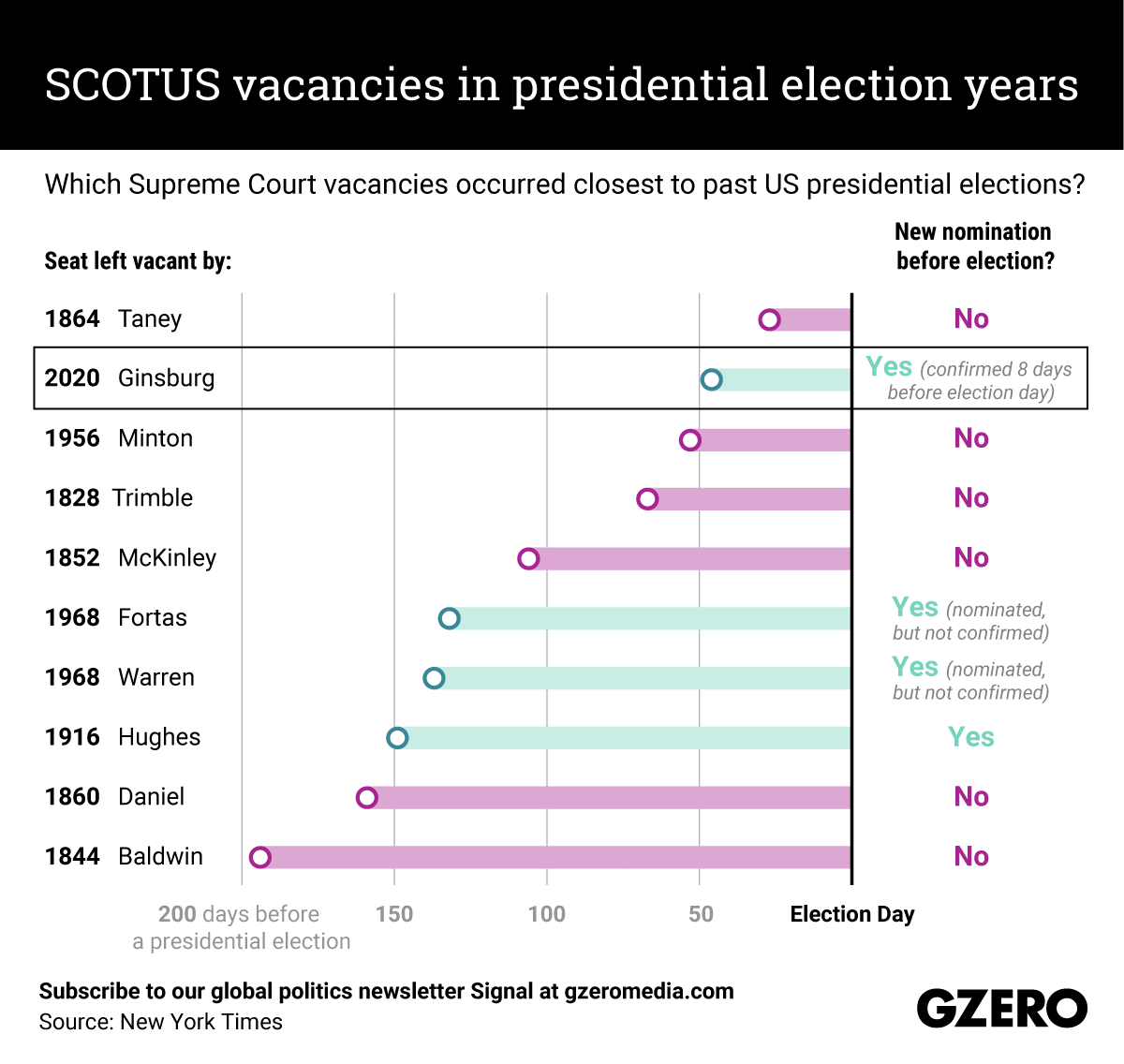The Graphic Truth: SCOTUS vacancies in presidential election years
When US Supreme Court justice Antonin Scalia died in February 2016 — 269 days before the US election — Senate Republicans blocked then-President Obama from filling the vacancy, arguing that — ostensibly to respect the wishes of the voting public — the Supreme Court seat should be filled only after the next US president was elected some nine months later. That precedent has now been upended after President Trump nominated Judge Amy Coney Barrett to replace Justice Ruth Bader Ginsburg, who died last month. Senate majority leader Mitch McConnell (who stalled the process in 2016) put the nomination to a vote and Barrett was confirmed to the highest court in the land just 8 days out from the US presidential election. Democrats are livid, calling the last-ditch process "illegitimate." But what has happened in the past when Supreme Court seats have opened up in election years? We take a look at the ten vacancies that occurred closest to the vote in past years.
- Graphic Truth: Would America Elect a Socialist? - GZERO Media ›
- Affordable Care Act upheld by Supreme Court, and Republicans move on - GZERO Media ›
- January 6 committee partisan battle; SCOTUS rules on election reform - GZERO Media ›
- January 6 committee partisan battle; SCOTUS rules on election reform - GZERO Media ›
- SCOTUS confirmation hearings no longer serve a purpose - GZERO Media ›
